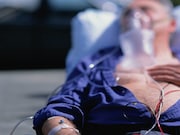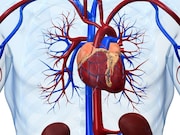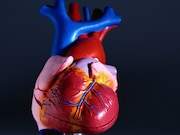Tag: Heart / Stroke-Related: Heart Attack
More Secondary Prevention Meds May Reduce Deaths After AMI
Mortality lower with more meds for older nursing home residents after acute myocardial infarction
Seniors Less Likely to Receive or Have Timely PCI for Acute MI
Patients >65 years of age have increased incidence of cardiac arrest, in-hospital mortality
Best Practices Developed for Diagnosing, Managing MINOCA
Algorithm aims to improve diagnosis, management of MI in absence of coronary artery disease
Outcomes for AMI Improved During 1995 to 2014
Declines seen in AMI hospitalization, 30-day mortality, 30-day all-cause readmissions, one-year recurrent AMI
Troponin Assay Confusion May Cause Misdiagnosis of Acute MI
Overall, 5.4 percent of 20,000 patients had high-sensitivity troponin I concentration >40 ng/L
ACC: Long-Term Outcomes for MI Similar at ≤40, 40 to 50
Patients aged 40 years or younger have increased rates of substance abuse compared with older patients
Incidence of Acute Myocardial Infarctions Up Among Young Women
Second study shows sedentary time linked to increased risk for cardiovascular disease for women
Nurse Navigators Aid Outcomes After Heart Attack Discharge
Observed benefits include reducing acute myocardial infarction readmission, mortality
CDC: Heart Attack Awareness Improved Since 2008
However, only about 50 percent of adults knew all five common heart attack symptoms in 2017
Postconditioning During PCI for STEMI Shows Delayed Benefits
Benefits at one year include reduced microvascular obstruction, improved left ventricular remodeling














